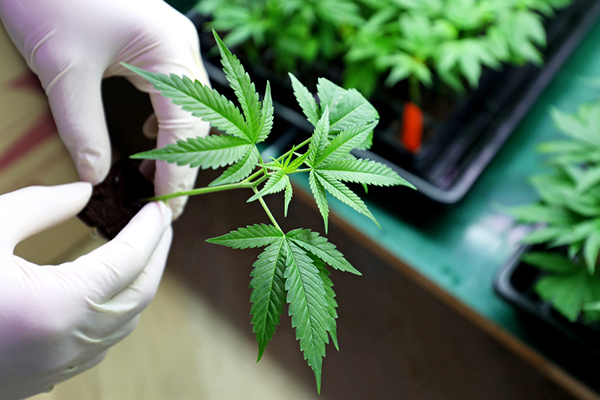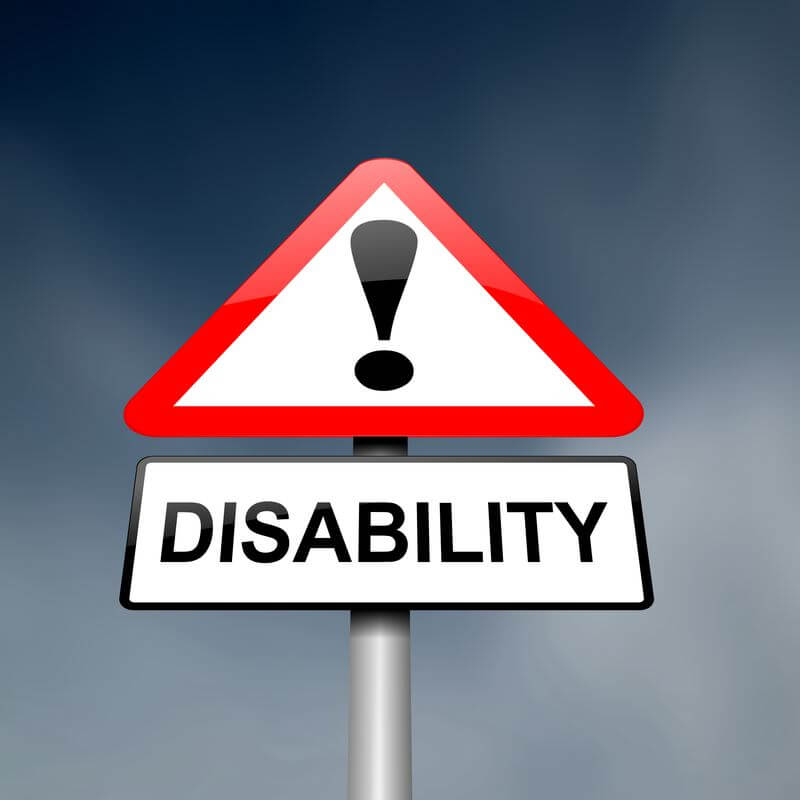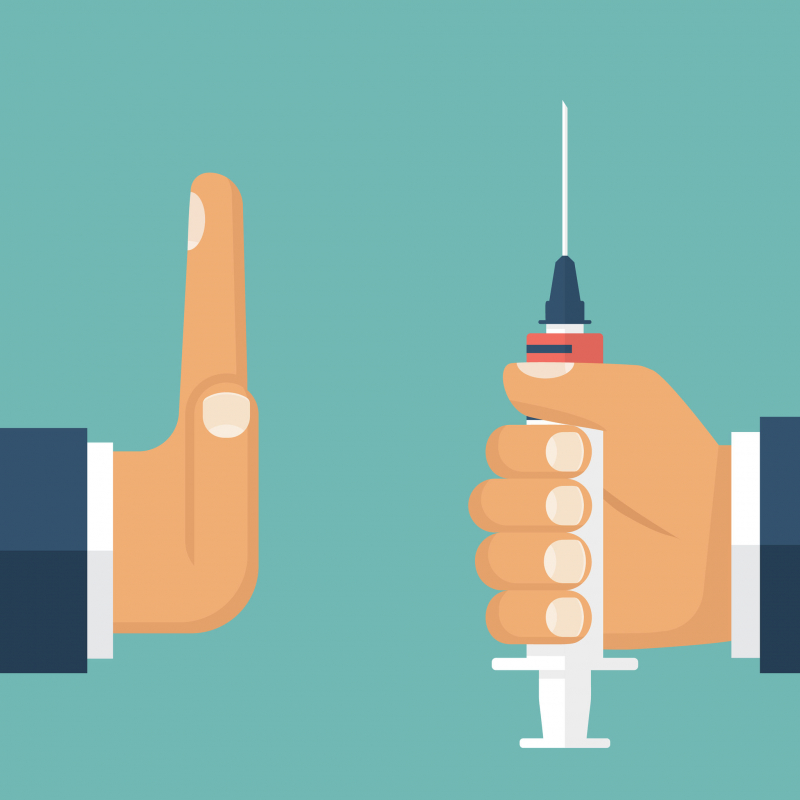Top 10 Unexpected Reasons That Organ Transplants Are Denied
In 2020, 39,000 organ transplants will be performed. That is a large number of potentially life-saving operations. It's also worth noting that 106,572 people ... read more...are on donor lists. As a result, the need far outweighs the ability to meet it. That is one of the reasons why there are some stringent requirements to qualify for an organ transplant. Unfortunately, not all of those standards and reasons are valid. Here is a list of unexpected reasons that organ transplants are denied.
-
The only thing worse than being denied an organ for something you’ve done is being denied for something someone else did. That’s what happened to two-year-old AJ Burgess. Carmellia Burgess told WXIA-TV that her son, A.J., was born without kidneys and requires a transplant. Anthony Dickerson, the boy's father, is a perfect match and wishes to give his son this lifesaving gift.
The surgery was scheduled for Oct. 3, but an Emory University Hospital official informed Burgess that it would be postponed until Dickerson could demonstrate that he had complied with the terms of his parole for three months. Dickerson has a history of running afoul of the law and was arrested last month for violating his probation, according to WXIA-TV.
That didn't appear to be a problem at first. Emory's Kidney and Pancreas Transplant Program requested his temporary release in a letter to the Gwinnett County jail. But then Burgess received a letter from the hospital saying the surgery would be delayed until Dickerson can provide documentation from his parole officer showing compliance for the next three months.Janet Christenbury, an Emory spokeswoman, said that privacy regulations prevent her from providing specific information about the hospital's patients. She also declined to comment on how a criminal record might affect an organ donor's eligibility.
https://www.youtube.com/ -
Discouraging the possibility of a person being denied a transplant because of a history of substance abuse on multiple occasions. If a person has a history of drinking, they may be denied a liver. That makes sense on paper. However, in practice, it is frequently discriminatory.
Due to her history of alcohol abuse, an indigenous Canadian woman was denied a liver transplant. It was suspected that acetaminophen had caused her liver damage, and despite having a drinking problem in the past, she appeared to be sober at the time she needed the surgery. Nonetheless, she was turned down.
An indigenous man from British Columbia was also denied after failing to meet the province's six-month abstinence policy for those in need of a liver. Indigenous Canadians have disproportionately high rates of alcoholism in their communities as a result of a variety of systemic conditions, including residential school abuse, poverty, and racist policies that have severely impacted their ability to thrive and even survive in Canada. On those grounds, the abstinence requirement was challenged as discriminatory.
The policy was allegedly repealed in 2018, but the case just mentioned occurred in 2019. The transplant board ruled that this was an error, and the man was reinstated on the transplant waiting list.
https://www.youtube.com/ 
https://www.detoxplusuk.com/ -
Among the unexpected reasons that organ transplants are denied, marijuana use is one of them. Currently, 36 states permit the use of medical marijuana, with half allowing recreational use. A number of countries around the world have also legalized, or at the very least decriminalized, its use in a variety of situations.
Despite their legality, transplants have been denied to people who used them as legally prescribed. Timothy Garon died after being refused a liver transplant due to his marijuana use. The hospital claimed that it was not the only factor in determining eligibility for any patient, but Garon's lawyer disagreed.
Garon's doctor had prescribed marijuana to help him deal with nausea and pain associated with his condition. The hospital said he needed to stop taking the drug for six months, but he didn't even have that long. They suggested a 60-day program, but his condition was also too advanced for that.

https://nida.nih.gov/ 
https://news.osu.edu/ -
Every year, up to 12 million diagnostic test errors occur in the United States. According to recent research, tens of thousands of people die each year as a result of medical errors, with some of those deaths undoubtedly the result of testing errors. But what if testing is required to determine who receives organ transplants? That, too, can go wrong.
A woman in need of a liver transplant was removed from the waiting list after doctors discovered she had been drinking. That would obviously be a major disqualifier for a liver. You don't want to give someone a new one that they will inevitably destroy. But there was a problem: the woman hadn't been drinking.
The issue with testing for such things is that doctors are prone to dismissing patients who present contradictory evidence. And they are not necessarily incorrect; many patients lie. However, this does not imply that they all do. It was discovered that the woman's bladder was producing its own alcohol in this case. After further investigation, she was eventually reconsidered for a transplant. This is one of the unexpected reasons that organ transplants are denied.

https://www.nytimes.com/ -
In fact, mentally disabled people are denied organ transplants so frequently that their rights are a rapidly emerging ethical issue in this field of medicine, where transplant teams have nearly complete autonomy in deciding who will receive scarce donor organs and who will be denied.
Aside from some limitations imposed by laws such as the Americans with Disabilities Act, doctors, nurses, psychologists, and social workers at the 815 transplant programs in the United States are free to consider neurocognitive disabilities such as autism in any way they see fit.
As a result, there is a great deal of variation between programs. Some teams place a high value on mental and psychological factors when deciding whether someone should be considered for the precious gift of a heart, liver, kidney, or lung. Others, however, do not. Some even admit to automatically dismissing people with certain disabilities. Some patients are turned down by one hospital but accepted by another.
Some efforts are being made to change this. In October, 30 members of Congress requested that the Department of Health and Human Services civil rights office issue guidance stating that discrimination in organ transplantation is a violation of the Americans With Disabilities Act. They also want the agency to tell transplant teams that a disabled person's support system should be considered when determining whether he or she will be able to adhere to a postoperative healthcare regimen, which is typically a factor in evaluating patients for a transplant.

https://www.cbsnews.com/ 
https://www.aliveinme.org/ -
Obviously, as laypeople, people do not have access to the same information that medical professionals do when deciding who receives an organ transplant and, thus, who lives and who dies. However, it can make some assumptions that are consistent with what makes sense. What is right in a subjective sense? When people hear that a baby requires a heart transplant, it seems obvious. A baby, of course, rises to the top of the list. It's a child.
A 5-month-old baby born with a heart defect was denied a heart transplant in 2013. He had already had two surgeries that had failed, and he was in heart failure. He was going to perish. His condition, according to doctors, put him at risk of tumors and infections. But when his mother looked up his condition online, she couldn't find a single mention of it. It was confirmed to her by a doctor.
One thing she did know was that children with her son's condition often grew up with severe disabilities, and she believed that was the true cause. A three-year-old girl in need of a kidney transplant had experienced the same thing. While it's long been known that intellectual disabilities keep people off the transplant waiting list, as you'll see shortly, this was a preemptive strike on a baby who hadn't even had time to develop one way or the other. It is considered one of the unexpected reasons that organ transplants are denied.

https://depositphotos.com/ 
https://www.safeopedia.com/ -
When it comes to the unexpected reasons that organ transplants are denied, one can't help but mention patients for being too poor. Imagine learning that your heart is failing and that you will need a transplant to live. You already know that there are 100,000 people on the waiting list for organs, with only a fraction of that number available. But, assuming you're in otherwise good health and meet all of the qualifications, you've got to be near the top of the list. Imagine learning that the average cost of a heart transplant is more than $1.3 million.
It may seem strange to suggest that you can be denied a life-saving procedure because you cannot afford it, but you can. Hedda Martin was denied a heart transplant because her finances were insufficient to cover the cost. The hospital advised her to start a fundraiser to raise at least $10,000.
Before any progress on a potential transplant is made, patients are routinely required to demonstrate their ability to pay in advance. A heart is the most expensive organ, but even a kidney can cost up to $400,000. Furthermore, there are anti-rejection drugs that cost $2500 per month and must be taken for the duration of your post-surgery life. Many recipients start GoFundMe campaigns, but if the money doesn’t flow, neither do the organs.
https://www.youtube.com/ -
Around 40% of fruits and vegetables grown on farms are discarded before they reach consumers for no other reason than they are unsightly. Imperfect produce is deemed unsellable, so it is not even sold, resulting in massive waste. Who wants a crooked apple, right? Probably a lot of people, but that's beside the point. This attitude appears to apply to human organs as well.
With a change in federal standards in 2007, imperfect organs, by whatever metric one uses to determine such a label, began to be turned away. This was essentially a business decision. Imperfect organs, like a severely ill recipient, necessitate higher-risk surgeries. The more dangerous a surgery is, the less likely it is to succeed. If a hospital performs too many unsuccessful surgeries, its ranking suffers and it receives less federal funding. So, in order to maintain their high ratings, they simply perform fewer transplants and only perform "sure thing" surgeries.
This viewpoint contradicts the purpose of transplant surgeries in the first place, as well as the notion that the sickest people deserve the organs first. Following the publication of a report outlining this, standards were changed to allow hospitals to have more surgical failures without losing funding, but it still appears to be a metric by which funding is gauged.

https://impossiblehq.com/ 
https://steamcommunity.com/ -
The COVID-19 pandemic has had more ups and downs than a Pogo stick, but one thing that has gradually emerged from it is the gap between vaccinated and unvaccinated people. Those who remained unvaccinated discovered that the world was becoming increasingly hostile to them. Those who couldn't prove their vaccination status were denied access to restaurants, movie theaters, and borders. And if you can't eat in a restaurant without being vaccinated, it stands to reason that you won't be able to get a lung transplant either.
With more than half the world vaccinated, including approximately 64% of the United States, hospitals have begun to take serious measures against the unvaccinated. Most notably, they denied a heart transplant to DJ Ferguson, 31, in part because he was still unvaccinated.
According to the hospital, they consider vaccine status and lifestyle choices when determining who qualifies for the very limited number of organ transplants in order to give recipients the best chance of survival. In other words, if you are unwilling to be vaccinated against a disease that will almost certainly kill you due to your compromised post-transplant immune system, they will not proceed with the procedure. After a transplant, a patient's immune system is virtually non-existent, so the vaccine is critical in their eyes.

https://www.openaccessgovernment.org/ 
https://covidactuaries.org/ -
When it comes to denials, when a hospital considers the reasons for or against giving someone a transplant, they will inevitably settle on one in particular. If a patient in need of a liver does not stop drinking, the transplant may be denied. Similarly, a lung transplant recipient will be denied if they continue to smoke. However, they will occasionally provide more esoteric reasons, such as "noncompliance."
In the context of organ transplantation, this can mean a variety of things, such as apprehension that the patient will not follow through on steps to ensure a healthy recovery after the procedure. Noncompliance was the reason Anthony Stokes, then 15, was denied a life-saving heart transplant in 2013. It meant that the boy had a history of poor grades and time spent in juvenile detention. In other words, the hospital refused to save his life because he had a criminal record. At age 15.
After the story went viral, the hospital miraculously reconsidered its stance and changed its mind. The boy, who had been given six months to live, was given surgery and a transplant. Stokes died in a car crash two years later after fleeing police in a final tragic twist.

https://www.visaplace.com/































